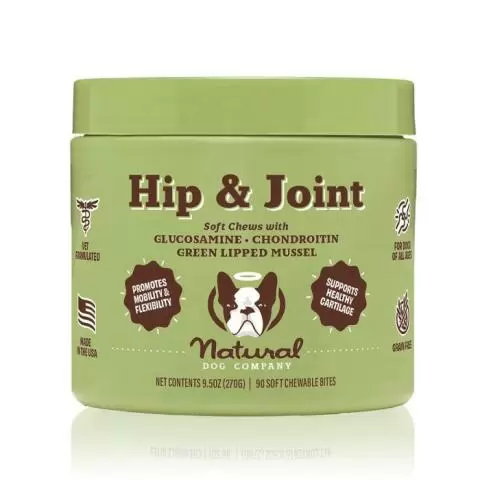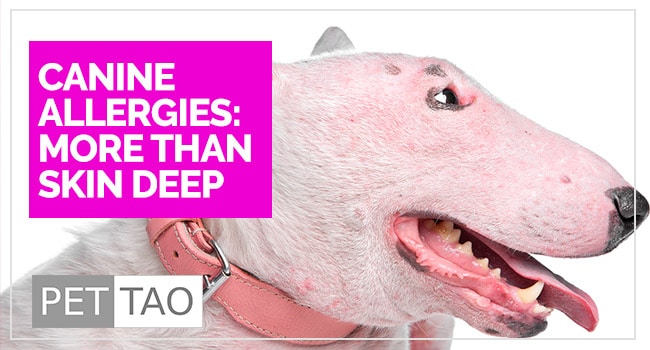Free Reasons On Picking Herbs Good For Dogs
Wiki Article
Omega-3 Fatty Acids: How Can They Benefit Joint Health?
Omega-3 fatty acids, particularly EPA and DHA have a significant role in improving joint health of dogs and cats. What they do is:
Anti-inflammatory properties
Reduction of Inflammation
Function: Omega-3 acids are powerful anti-inflammatory agents. They lower the proinflammatory substances like eicosanoids or cytokines which can trigger inflammation.
Omega-3s can reduce joint inflammation and reduce swelling and pain due to conditions like arthritis. This allows for more comfort in movement for pets and improves their overall quality of life.
Joint Lubrication and Health
Better joint lubrication
Function The fatty acids are responsible for the health of the joint synovial lubricant.
Benefits of lubrication with better quality The less friction means less wear and tear on cartilage. This is especially beneficial to pets with joint issues or those who are at risk of developing them.
Cartilage Protection and Repair
Cartilage Protection:
Function: Omega-3s decrease the activity of enzymes that breakdown cartilage.
Benefits: Preventing cartilage degradation can aid in maintaining joint strength and can even slow the progression of ailments such as osteoarthritis.
Immune System Support
Immune System Regulation:
Function They are well-known for their ability to regulate and balance the immune system.
Benefits: A healthy immune system that is well-controlled can aid in better managing joint problems. This helps to prevent inflammation and joint damage.
The comfort and ease of mobility are enhanced.
Improved Mobility
Omega-3s have a number of functions. They can reduce inflammation and help preserve joint structure. This helps pets move more easily.
Benefits: Many pets, particularly older pets or those with arthritis show less pain and better mobility. This leads to a happier and more active life.
Additional Health Benefits
Overall Health:
Function The Omega-3 Fatty Acids promote cardiovascular, skin and hair health for pets.
Benefits: A pet with better joint and bone health will likely be more active.
Use and considerations
Dosage: The amount of Omega-3s is determined by the size, weight and health condition of your pet. Follow the directions on the label or those provided by your vet.
Omega-3s can be obtained from fish oil supplements. They are a fantastic source of EPA and DHA. It's essential to choose products specifically designed for pets to ensure safety and efficacy.
The side effects of Omega-3 supplements are generally safe but some pets may experience gastrointestinal issues or fishy breath. It is suggested to start with a smaller dose and then gradually increase the dosage. This will reduce any side consequences.
Conclusion
Omega-3 fatty acids are highly beneficial to joint health in dogs and cats. Their ability to reduce inflammation, improve the lubrication of joints and protect cartilage, as well as help strengthen the immune system help improve joint health and reduce discomfort. Regular supplementation may lead to more mobility, healthier living and increased activity for pets. Have a look at the best pet wellbeing australia info for more advice including pet allergy supplements, pet supplements for pets with nerve damage, pet weight loss supplements, organic pet supplements, pet supplements for pets with fear of handling, pet willow bark supplements, pet supplements for pets with fear of being alone, pet supplements australia and more.

How Can Coconut Oil Aid With Cat And Dog Allergies To The Skin?
Coconut oil, which is moisturizing and also anti-inflammatory and healing, can aid pets suffering from skin allergies. Coconut oil has many benefits for pets who suffer from skin allergies.
Moisturizing Properties
Skin Hydration
Coconut oil can provide moisturizing effects to the skin.
Benefits: Helps moisturise dry skin that is flaky, itchy and dry. It reduces itching while also promoting an effective skin barrier. This is especially useful for pets suffering from allergic dermatitis that often results in dry and itchy skin.
Anti-inflammatory effects
Reduce Inflammation
Coconut oil contains lauric, which is an anti-inflammatory chemical.
Coconut oil reduces swelling and inflammation in areas affected by allergies. This can be a an important relief for pets who suffer from allergic reactions.
Antimicrobial Activities
Fighting Infections
Function The antimicrobial properties of the lauric and caprylic acids found in coconut oil aid to combat viruses, bacteria and fungi.
Coconut oil is a natural remedy for secondary skin conditions caused by itchiness, allergies, and irritation. It improves overall skin health by preventing any further problems.
Soothing and Healing
Encourage Healing
Coconut oil helps to support the skin's natural healing processes.
Benefits: It can treat minor injuries and soothe them such as abrasions, hot spots and scratches that are caused by excessive scratching. This aids in speeding up the healing process of the skin damaged by allergies.
Barrier Protection
Enhancing Skin Barrier:
Coconut oil is a natural moisturizing agent which helps to reinforce the skin barrier.
Benefits: A healthy skin barrier protects against allergens and other environmental irritations. This decreases the chance of allergic reactions or skin infections.
Dietary Supplements
Internal Benefits
Function: Coconut oil can also be given orally as a dietary supplement.
Benefits: When consumed by mouth, it helps improve skin health from the inside out. Its antimicrobial properties and anti-inflammatory properties can assist to lower the severity of inflammatory reactions and enhance the immunity of animals. This may cause a reduction in the severity and frequency of skin allergies.
Use and considerations
Topical application Use a tiny amount of coconut oils directly on the skin affected. Massage gently until it is absorbent. It can be done either once or twice a day, based on the severity of your skin condition.
Coconut oil can be added directly to pet food. The usual amount of coconut oil used is one teaspoon for every 10 pounds of body weight. However, it is essential to start with a small amount and increase it gradually to avoid stomach upset.
Coconut Oil: Use virgin coconut oil that is high-quality organic and free of preservatives.
Watching for reactions. Coconut oil is considered generally safe for pets, make certain to be on the lookout for reactions.
The article's conclusion is:
Coconut oil can help manage allergies to the skin for dogs as well as cats. Its antimicrobial and healing properties as well as its anti-inflammatory and moisturizing properties, soothe and protect the skin, lessen inflammation and itching, and improve the health of your skin. Regular application of coconut oil on pet's skin can alleviate symptoms of allergies for pets. Read the most popular more help on yeast infections in dogs for website tips including pet rhodiola supplements, pet supplements for pets with dull coat, pet yucca supplements, pet supplements for pets with fear of collars and harnesses, pet eleuthero supplements, pet supplements for pets with motion sickness, pet supplements for pets with fear of death, pet supplements for pets with anxiety disorders and more.

Oregano Oil Can Be Used To Treat Yeast Infections In Dogs As Well As Cats.
Oregano oil is used as a natural remedy to treat yeast-related infections in cats and dogs. Its potent antimicrobial ability is especially effective against fungal pathogens, such as Candida. Here's how oregano oil can help with yeast infections:
Antifungal Properties
Active Compounds:
Oregano essential oil is rich in carvacrol and thymol that are powerful antimicrobial agents.
Benefits: These compounds have been shown to effectively hinder the growth of fungi which includes Candida species that cause yeast infections.
Antimicrobial Activity
Broad-Spectrum Action:
Oregano Oil has broad spectrum antimicrobial effects which includes bacteria as well as fungi.
Benefits: By targeting the overgrowth of fungal fungi, it can decrease yeast infections in dogs or cats. This is particularly true for sensitive areas such as the ear and skin.
Anti-inflammatory Effects
Inflammation reduction:
Oregano oil is anti-inflammatory and can relieve symptoms of yeast infection which can cause itching and redness.
Benefits - Oregano Oil may reduce inflammation and provide relief to irritations of the mucous membranes and the skin.
Support Immune Function
Immune Modulation:
Oregano oils help to support the immune function of the body by strengthening the body's natural defenses.
Benefits: A more robust immune response will aid your body in fighting off yeast infections. It also helps prevent them from returning.
Use and considerations
Topical Application - Dilute oregano oils using carrier oils (such coconut oil or olive) prior to applying them topically. Dilution is usually 1-2 drops oregano for each tablespoon of carrier oil.
Avoid ingestion. Oregano is extremely concentrated. It should not be consumed by pets without the supervision of a vet because it is toxic in large amounts.
Patch Test: Apply an experiment patch on a small section of skin prior to applying the product to an area larger. This will allow you to know if there are any reactions that are not expected.
Consultation with a Veterinarian - Always consult a veterinarian prior to using oregano for yeast infections. They can assist you with the proper dilution techniques applications, as well as risks that may be associated with your pet.
Conclusion
Oregano is antibacterial which makes it a great natural remedy to treat yeast infections. The ability of oregano oil to ease inflammation and control yeast infections can be attributed to its antimicrobial qualities. To ensure the safety and effectiveness of your pet, you should apply this product under the supervision of your veterinarian. Oregano is best employed in conjunction with a comprehensive plan of treatment for yeast infections. See the best dog coughing for more examples including pet sleep supplements, pet collagen supplements, pet msm supplements, pet ginkgo biloba supplements, pet papain supplements, pet bone broth supplements, pet supplements for pets with joint degeneration, petz park and more.
